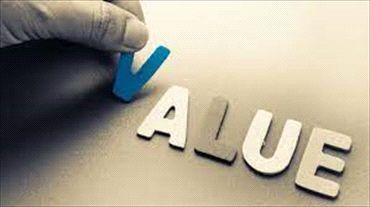Follow Us
Get in Touch
Add Backs: What Are They?
Understanding the seller’s true Net income
A deeper understanding of which seller expenses can be added back to the bottom line realistically.
The prospective buyer of an auto repair shop for sale in California noticed, while conducting Due Diligence noticed that an office assistant was listed on the payroll. But he'd visited the business as a customer and had never seen anyone working in the office.
When inquiring about this, he learned that a "salary" of $1,500 per month was being paid to the seller's sister-in-law, and that she was listed as an office assistant, but didn't actually work at the company.
That's an "add-back" and it should be included with net income the seller said.
The buyer was troubled by this discovery. Also confusing was the seller's assertion that auto expenses, such as gas and insurance charged off as business costs, should be added back to profits.
These are just two examples of the many questions and sources of confusions that can surface when trying to understand the actual costs involved with operation of a business. The confusion comes about because many, if not most sellers attempt to show as little income as possible to reduce the taxes that have to be paid. Then, when it's time to sell, the business owner has the opposite objective, wanting to show as much earnings as possible to justify the price being asked for the business.
The typical way of resolving this dilemma is for the seller to point out the costs charged to the business but not really necessary to operate.
Good examples of these expenses are the owner’s personal expenses paid through the business amongst other items.
These explanations, however, sometimes raise more questions than they answer.
When the buyer who was investigating the business looked into what the seller was saying, he learned that although there was no one physically present in the office during business hours, it was necessary to have someone handling office work. The sister in law came in on evenings or weekends to balance the company check book, verify that all parts ordered were charged against repair orders, to compare vendor statements with individual invoices, handle payroll and sales tax responsibilities and take care of related duties.
And while it was true that the seller was charging the business for his personal auto expenses, it also was the fact that the car was used for needed business activities such as picking up parts and taking customers to their home or office.
A well prepared adjusted profit and loss statement anticipates buyer questions and clearly defines what expenses on the operating statement are, and what are not necessary for efficient management of the business.
But not every seller knows how to provide that information in a way that's easy to understand. And not everyone is willing to engage in full and complete disclosure.
It's up to the careful buyer to question every item on the income and expense statement. And to ask questions such as:
- Is each itemized expense necessary in order to operate the business properly?
- Is the listed total for each item the actual expense, or is the real cost lower, or higher than what has been entered in the books?
The smart business buyer does not accept, without question, the figures listed in the P&L and financials of a company being considered, but does some investigating to learn what the figures actually represent.
Part of the Business Brokers job is to question the seller about each items to determine if the expense is a “true business expense” or is it an expense that is necessary to run the business.
A competent Business Broker will review the seller’s P & L’s and “recast” the numbers by adding back the “non-essential expenses” that were paid through the business in order to arrive at an Adjusted net income for the business.
Buyers will find that 98% of small business owners have some type of add back and should not walk away from the business if they are satisfied with the seller’s explanations of the “add backs”.
Recent Articles For You

First Choice Business Brokers Northwest Arkansas
Navigation Links
Want to receive new business listing alerts by email?
The World's Authority in Business Sales
© 2024 First Choice Business Brokers Northwest Arkansas | Each office is independently owned and operated. | Privacy Policy





